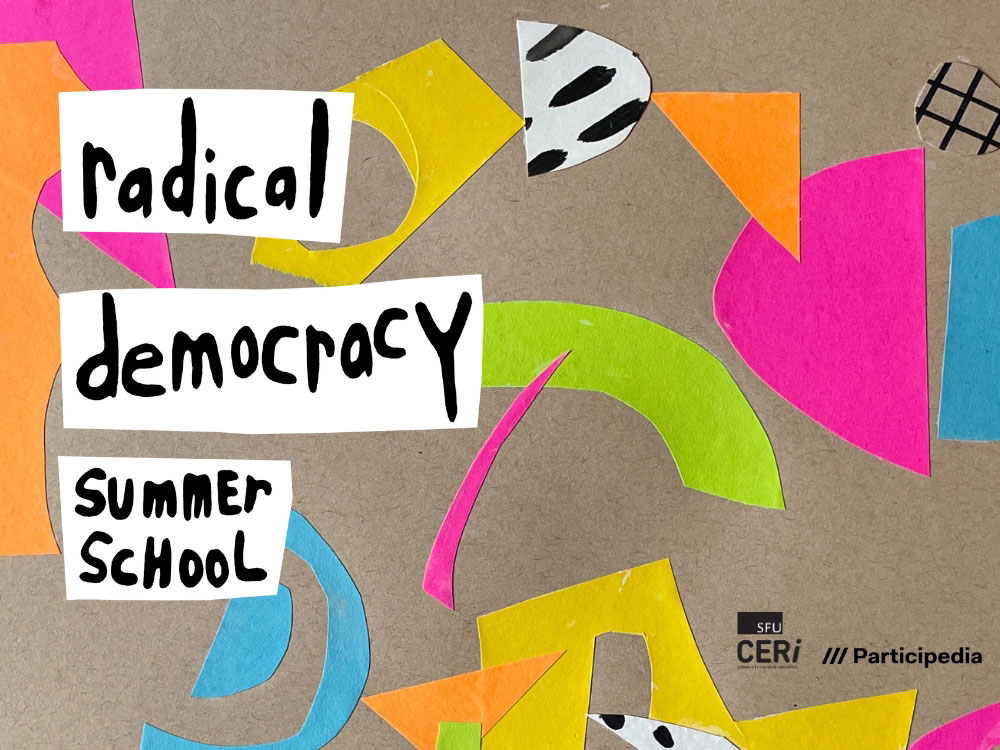Radical democracy isn’t all disruption and protest.
These methods are sometimes necessary — but what are the different forms of democratic power necessary to maintain equality and inclusion in a just society?
To learn how to act with greater clarity, wisdom and agency about the possibilities, the Radical Democracy summer school, hosted by Simon Fraser University’s Community-Engaged Research initiative, asks you to bring your ideas to the program this June.
As researchers, educators and practitioners from various disciplines, we are collaborating with scholars and leaders from the global project Participedia to host an intensive and timely learning conversation about the possibilities for deepening democracy.
We are inviting critical thinkers to join this assembly in early June to examine, critique and envision a more radically democratic society.
The questions at the heart of this inquiry revolve around a set of themes — power, disruption, creativity and futurity, agency, care, decolonization and more.
There are democratic tensions between our commitments to liberal values, such as individual freedom, and the emphasis on collective agency and equality.
To be radically democratic is to recognize the interdependence inherent in any human group, and embracing love and care to strengthen democracy and life on Earth more broadly. The role of art and creativity are significant tools for reshaping the world and doing that work.
Notions of design justice and participatory art are among the many methods used in different settings with diverse populations to strengthen citizen participation and bridge the gap between people and government.
The program not only explores the theory and practice of radical democracy, it offers training in creative research methods that can be brought to both global and local contexts such as land-back movements, access to health-care services, citizen protest against the expansion of oil and gas production and other complex areas of concern.
The summer school will explore ways to reimagine and shape the world using collaborative tools. This learning conversation will imagine nothing short of fostering radically democratic practices everywhere, at all levels, all at once.
Sessions will be guided by bright, creative and thoughtful mentors and teachers including Indigenous scholars Kathy Walker from the University of Saskatchewan and Cara Peacock from the University of Toronto; Genevieve Fuji Johnson, professor of political science from Simon Fraser University; Astra Taylor, the Canadian-American director of the film What is Democracy?; Bonny Ibhawoh, one of Participedia’s principal investigators and a professor of human rights and African history at McMaster University; Selen Ercan, a professor of political science and director at the Centre for Deliberative Democracy and Global Governance at the University of Canberra, and many more visiting faculty members.
Radical democracy refers to aspirations, ideas and practices about the roots of what democracy is or should be — a system of governance that ensures equality, justice and inclusion of all citizens and means for working through conflicting visions of how to plan and govern.
Join us to work towards solutions from June 4 to 10 at SFU Habour Centre. Registration is open until May 15.
About the SFU summer school hosts
Participedia is a global network and crowdsourcing platform for researchers, educators, practitioners, policy-makers, activists, and anyone interested in public participation and democratic innovations.
SFU’s Community Engaged Research Initiative, or CERi, promotes principles of participation, co-operation, social transformation and knowledge translation to lift up and strengthen the capacity of SFU's researchers and students to engage respectfully and ethically with community members. ![]()
Read more: Rights + Justice, Politics, Education
This article is part of a Tyee Presents initiative. Tyee Presents is the special sponsored content section within The Tyee where we highlight contests, events and other initiatives that are either put on by us or by our select partners. The Tyee does not and cannot vouch for or endorse products advertised on The Tyee. We choose our partners carefully and consciously, to fit with The Tyee’s reputation as B.C.’s Home for News, Culture and Solutions. Learn more about Tyee Presents here.
















Tyee Commenting Guidelines
Comments that violate guidelines risk being deleted, and violations may result in a temporary or permanent user ban. Maintain the spirit of good conversation to stay in the discussion and be patient with moderators. Comments are reviewed regularly but not in real time.
Do:
Do not: